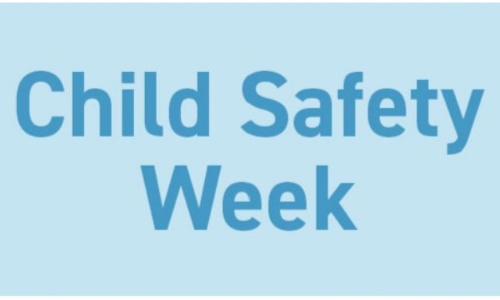Keeping Our Children Safe: Child Safety Week 2025 – Information for Parents

Mark your calendars! Child Safety Week 2025 will run from Monday 2nd June to Sunday 8th June, and this year's crucial theme is "Safety is for sharing."
As a school, the safety and wellbeing of our pupils is always our top priority. Child Safety Week, an annual campaign organised by the Child Accident Prevention Trust (CAPT), provides a fantastic opportunity for us all – school, parents, and the wider community – to refresh our knowledge and focus on preventing accidents and keeping children safe from harm.
This year's theme, "Safety is for sharing," highlights the importance of talking about safety, sharing our experiences, and learning from each other. Accidents can happen to anyone, but by working together and sharing simple, practical advice, we can significantly reduce the risks.
Why is Child Safety Week Important for Our Families?
Children are naturally curious and adventurous, which is wonderful for their development. However, it also means they can be more vulnerable to accidents. From bumps and bruises to more serious injuries, many accidents are preventable with the right awareness and precautions. Child Safety Week encourages us to:
- Be more aware: To think about potential dangers in and outside the home.
- Share knowledge: To discuss safety tips with our children, family members, and other parents.
- Take action: To make small changes that can make a big difference to a child's safety.
Key Areas of Focus for Primary School Children:
During Child Safety Week, and indeed throughout the year, it's helpful to consider some key safety areas relevant to primary school-aged children:
- Safety at Home: This includes preventing burns and scalds (especially from hot drinks and cooking), choking hazards (from small toys or food), falls (from windows, stairs, or furniture), and poisoning (from medicines or cleaning products).
- Road Safety: With many of our children walking to and from school, understanding road safety rules, using pedestrian crossings, and being aware of traffic is vital.
- Online Safety: As children increasingly navigate the digital world, it's crucial to have ongoing conversations about staying safe online, protecting personal information, and responsible internet use.
- Playing Safely: Whether in the playground, at the park, or at home, encouraging safe play, including awareness of potential hazards with toys or during outdoor activities, is important.
How You Can Get Involved:
- Talk to Your Children: Use age-appropriate language to discuss safety in different situations. Ask them what they think is important for staying safe.
- Review Your Home Environment: Take a fresh look around your home for any potential hazards and address them.
- Access Resources: We have uploaded a resource pack of helpful information to support you. We encourage you to explore these.
- Share What You Learn: Talk to other parents, share tips on class groups (if applicable), or discuss with family members. The more we share, the safer our children will be.
- Lead by Example: Children learn by watching adults. Demonstrate safe behaviours in your everyday life.
We believe that by working in partnership, we can empower our children to make safe choices and create a safer environment for everyone. Let's make Child Safety Week 2025 a fantastic opportunity to reinforce these important messages.
Keep an eye on the school dojo for any specific activities or further information we might be sharing during Child Safety Week.
If you would like more information please visit https://capt.org.uk/child-safety-week/

